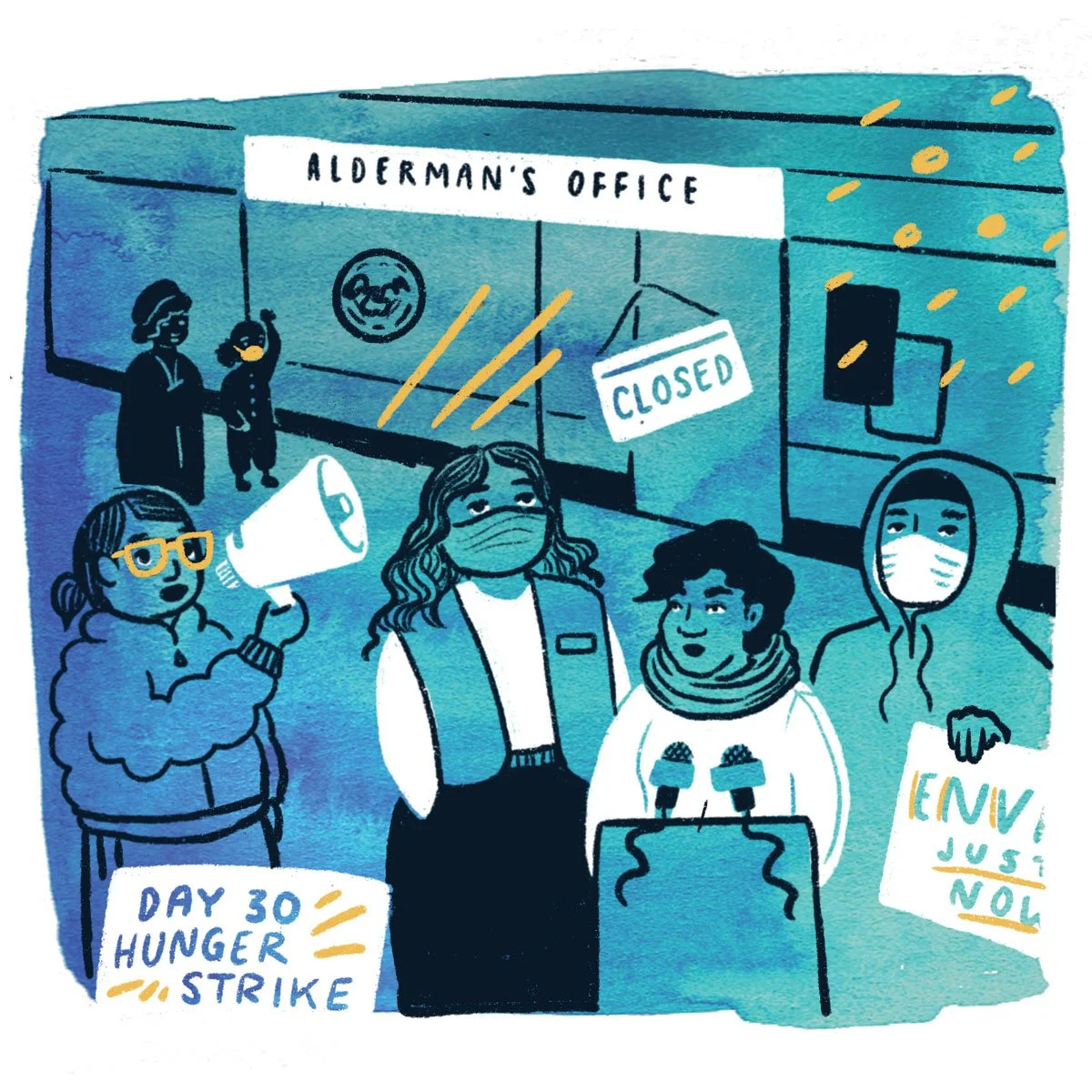Here are three types of agreements community members can negotiate with developers, and why you would choose each.
By Alma Campos, Sarah Conway and Phoebe Mogharei, City Bureau
(Illustration: Cori Lin/City Bureau)
This article is part of Will That New Development Benefit Your Community? The People’s Guide to Community Benefits Agreements and Alternatives.
When a real estate developer wants to enter a community, it might make promises (either in writing or verbally) about how this new project will benefit a community, in order to get support from community members and/or politicians. But how can a community coalition hold a developer accountable for the promises it has made? This answer depends on where and how the developer made its promises, as well as the strength of the community coalition and whether it has support from local officials. In Chicago, City Bureau found that community members have used these three types of agreements when negotiating with developers.
Community Benefits Agreement (CBA) — Community members can sue a developer if it has breached the CBA contract. However, due to this litigation risk, a developer might be unwilling to sign the contract even if it is amenable to the commitments that local residents want. In that case, the agreement might take the form of a Memorandum of Understanding or a verbal agreement.
Memorandum of Understanding (MOU) — An MOU is a written agreement between two parties that is usually not a legally enforceable contract. Community members and a developer may agree to promises from both parties and choose to document them in an MOU instead of a legally binding CBA. In practice, this type of agreement does not usually provide specific commitments or repercussions if either party doesn’t meet the commitments.
Verbal agreement — While a verbal agreement is hardest to enforce, since by definition there is no written record of the promises made, at least one local coalition has seen success with this method. Resident Association of Greater Englewood (R.A.G.E.) brought together a coalition of residents to host meetings and listening sessions with the Whole Foods CEO and regional staff in 2015. These conversations led to securing community input into the design of the store so that it was “true to Englewood,” with 40 Black-owned businesses’ products on the shelves, vendor workshops and resources for entrepreneurs, jobs accessible for returning citizens in the community and more.
Regardless of the type of agreement, Clifford Helm of Chicago Lawyers’ Committee for Civil Rights says that holding developers accountable for their promises depends on the strength of the community coalition. By gathering folks in the community, talking about shared needs and negotiating with a developer, a coalition can shift power to the community and build public awareness and momentum for their work. This strong community investment can shift public opinion of the development, whether the agreement is legally enforceable or not.
Will That New Development Benefit Your Community? The People’s Guide to Community Benefits Agreements and Alternatives informs, engages and equips Chicago residents to be active participants in the development process. Want to share this zine with your neighbors? You can order print copies in English and Spanish here.
Support City Bureau’s community-centered reporting by becoming a City Bureau sustaining donor today.
To get twice-monthly emails including Chicago news and events, sign up for City Bureau’s Chicago newsletter.


